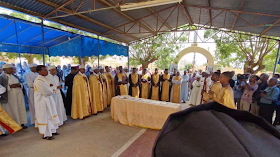The Eritrean Diaspora Opposition Movements: Obstacles and Challenges
https://lnu.diva-portal.org/smash/get/diva2:1676042/FULLTEXT01.pdf
A Master's thesis by Berhane Kidane. the Faculty of Peace and Development Studies, Master Programme at the Linnaeus University, Sweden
Summary:
This thesis examines the reasons why Eritrean opposition organizations have not succeeded in overthrowing the authoritarian regime in Eritrea. It primarily focuses on the role of transnational Eritrean political organizations and civil societies. The thesis employs social constructivism to study these organizations' collective activities and reactions to the Eritrean government's policies towards the diaspora, arguing that the government uses various mechanisms to hinder effective mobilization.
The analysis highlights the divisions and fragmentation among the Eritrean diaspora opposition, which weaken their ability to instigate change from abroad. The study contributes to the understanding of transnationalism by showing how states exert coercive power across borders and the conditions under which diasporas mobilize against home-country regimes. It explores the Eritrean regime's strategies, including coercion, co-optation, and legitimation, to control and exploit its diaspora.
The study addresses two generations of Eritrean migrants: those who fled during the independence war (1961-1991) and those who left after independence due to violence and political oppression, particularly after 2003 when indefinite conscription was enforced.
A case study was conducted to analyze how Eritreans mobilize against the state, revealing that the government effectively hinders diaspora mobilization while the opposition remains fragmented and unable to form a consolidated alternative to the regime.
The thesis critically analyzes the post-independence transnational strategies employed by the Eritrean government and their implications for the diaspora opposition movements. It uses a qualitative methodology, drawing on semi-structured interviews and existing literature, and situates its theoretical framework within the concepts of diaspora and transnationalism.




